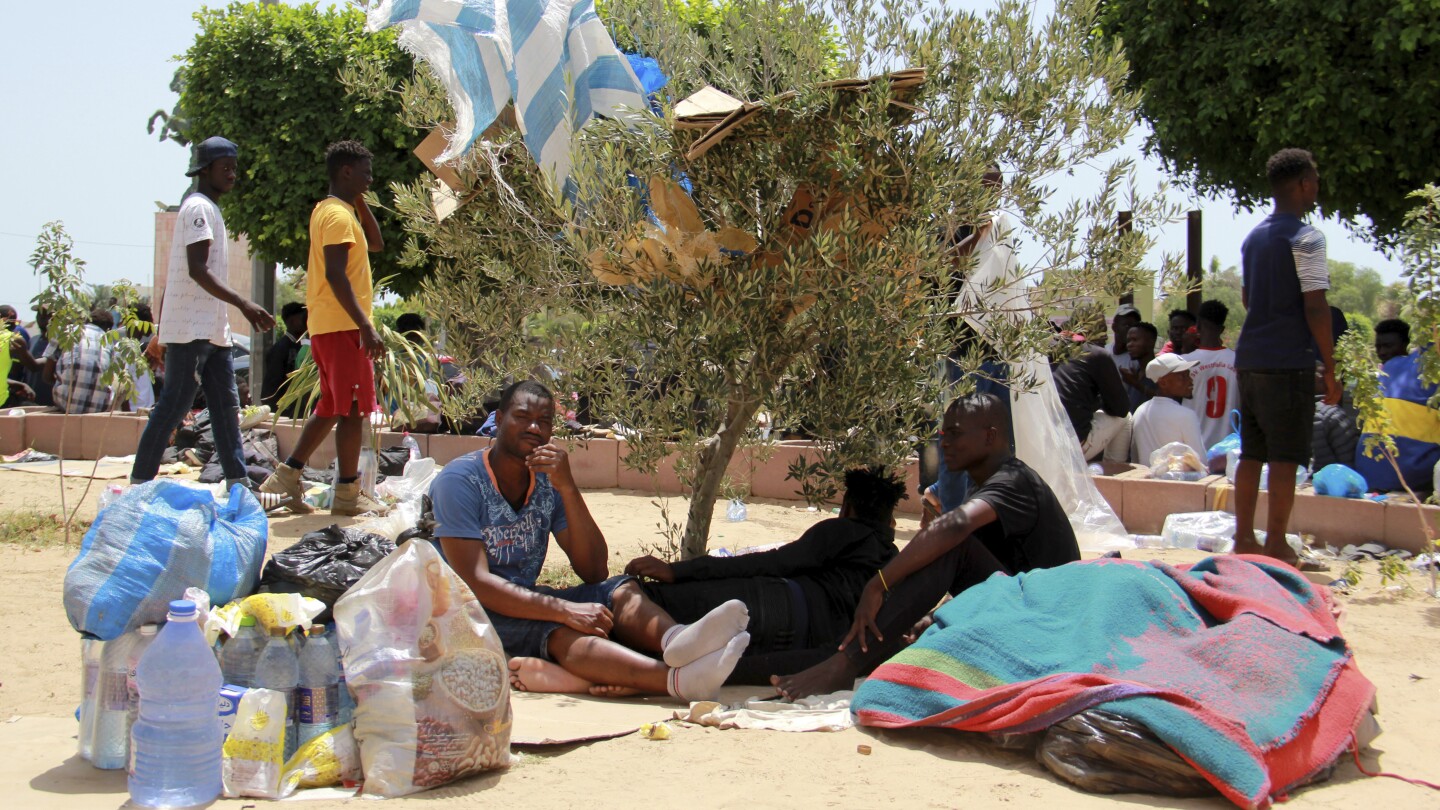TUNIS, Tunisia (AP) — At least 15 migrants have been found dead off Tunisia’s coast and on its border with Algeria this week, authorities said Friday as sub-Saharan Africans face increasing tensions in Tunisia and more and more people seek to leave or transit through the country en route to Europe.
The Tunisian coast guard retrieved the bodies of 13 migrants on Wednesday night and rescued 25 others off the port city of Sfax, according to a statement from the Interior Ministry. Sfax has been the main departure point in Tunisia for people seeking to reach Europe on risky boat journeys across the Mediterranean Sea, often toward the Italian island of Lampedusa.
The city has also seen clashes between local residents and groups of migrants. After the death of a Tunisian man led to reprisals against the migrants, hundreds were deported to desert areas on the Libyan and Algerian borders.
Amid international outcry over the plight of those trapped on the Tunisian-Libyan border, in a dangerous no-man’s-land between armed border guards and without access to basic necessities, the Tunisian Red Crescent led an operation to bring them back to various sites in Tunisia earlier this week. But it remains unclear what will happen to them next.
On the Tunisian-Algerian border, two migrants from sub-Saharan Africa were found dead in two separate locations in the Hazoua region, according to regional court spokesperson Nizar Iskander. Local reports have said as many as 30 migrants died in the area, and local prosecutors have opened an investigation, Iskander said.
The International Organization for Migration says 1,895 people have died or gone missing en route from northern Africa across the central Mediterranean this year, compared with 2,406 in all of 2022.
Tunisia’s struggling economy, with soaring debt and high inflation and unemployment, is pushing more Tunisians and other Africans in Tunisia to make the journey.
European Commission President Ursula von der Leyen, Italian Prime Minister Giorgia Meloni and Dutch Prime Minister Mark Rutte are expected in Tunis on Sunday for a second meeting with the increasingly authoritarian Tunisian President Kais Saied to discuss aid.
The European Union last month offered Tunisia more than $1 billion to help its slumping economy, and to beef up border services to stop migrant boats from crossing to Europe.
Saied stoked racist incidents earlier this year by railing at Black Africans who transit through Tunisia toward Europe.

